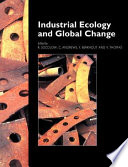Descrição
Ecosystems are, or can be, the wealth of the poor. For many of the 1.2 billion people living in severe poverty, nature has always been a daily life-line–an asset for those with few other material assets. But programs to reduce poverty often fail to account for the important link between environment and the livelihoods of the poor. World Resources 2005 argues that the bounty of ecosystems can act as a fundamental stepping stone in the economic integration of the poor. This requires that the poor manage ecosystems to attain, or regain, stable productivity over time. But it also requires that the poor be able to reap the benefits of this good stewardship. Unfortunately, those in poverty are rarely in such a position of power over natural resources. An array of governance failures typically intervenes: lack of legal ownership and access to ecosystems, political marginalization, and exclusion from the decisions that affect how these ecosystems are managed. Without addressing these failures, there is little chance of using the economic potential of ecosystems for reducing poverty. World Resources 2005 details the steps necessary to empower the poor to use ecosystems both wisely and for wealth. Using examples and case studies, the report traces a route to greater environmental income. Working at the cutting edge of sustainable development, it lays out the governance changes necessary to give the poor the legal, financial, and management capacity to use nature for wealth creation without depleting their fragile resource base. This new edition also includes a collection of national statistics and interpretive graphics on current environmental, social, and economic trends in more than 150 countries. – Contents: – Chapter 1 Nature, Poverty, And Power; – Chapter 2 Ecosystems And The Livelihoods Of The Poor; – -Chapter 3 The Role Of Environmental Governance; – Chapter 4 Parlaying Natural Assets Into Wealth; – Chapter 5 Pro-Poor Forests And Fisheries; – Chapter 6 The Millennium Development Goals: Keeping Ecosystems And Governance In Mind; Special Break-Out Section Global Trends In Environment And Development; Data Tables 12 Separate Tables, 160 Variables; 150 Countries; –
por
- Capa comum : 250 paginas
- ISBN-10 : 1569735824
- ISBN-13 : 9781569735824
- Obs.: paginas amareladas pelo tempo




